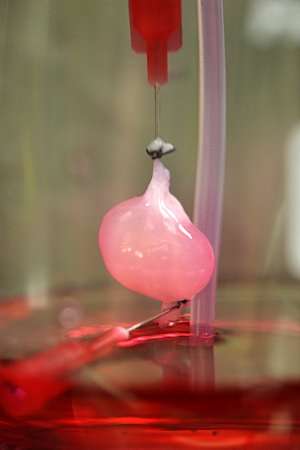Tissue Engineers Make Working Kidneys in the Lab - For Rats

Researchers at Massachusetts General Hospital in Boston have engineered working kidneys for rats with the goal of eventually creating made-to-order human kidneys for transplant. From the abstract in Nature Medicine:
Approximately 100,000 individuals in the United States currently await kidney transplantation, and 400,000 individuals live with end-stage kidney disease requiring hemodialysis. The creation of a transplantable graft to permanently replace kidney function would address donor organ shortage and the morbidity associated with immunosuppression. Such a bioengineered graft must have the kidney's architecture and function and permit perfusion, filtration, secretion, absorption and drainage of urine. We decellularized rat, porcine and human kidneys by detergent perfusion, yielding acellular scaffolds with vascular, cortical and medullary architecture, a collecting system and ureters. To regenerate functional tissue, we seeded rat kidney scaffolds with epithelial and endothelial cells and perfused these cell-seeded constructs in a whole-organ bioreactor. The resulting grafts produced rudimentary urine in vitro when perfused through their intrinsic vascular bed. When transplanted in an orthotopic position in rat, the grafts were perfused by the recipient's circulation and produced urine through the ureteral conduit in vivo.
In the future, physicians could take cells from a person suffering from kidney failure and perfuse them into a stripped down pig kidney scaffold. The new revitalized bioengineered kidneys that would replace the failed kidneys would be an immunological match to the patient.
In the meantime, other researchers are working on ways to create whole organs by means of 3-d bioprinting. The 21st century is great!


Show Comments (33)